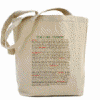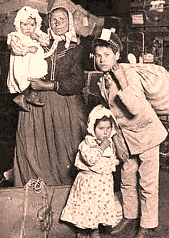
We're an all volunteer website and need your help to keep going. Here are five ways you can contribute: 1 Donate 2 Buy something 3 Submit a story 4 Volunteer 5 Advertise

New in the gift shop, virtualitalia.com logo wear and use items! 
|
PLEASE NOTE: We are experiencing unexpected
technical difficulties caused by our web host. We apologize for
the inconvenience. During your visit you may experience service
and page interruptions - we are in the process of fixing everything and hope to be
fully back on our feet soon.
interview your family  Interviewing relatives can prove rewarding and may provide you with information you may not find in paper records.
Most elder family members enjoy telling stories about what it was like when they first came to America. How they lived, worked, raised their families, etc., are still vivid memories that can be recorded for future generations.
Interviewing relatives can prove rewarding and may provide you with information you may not find in paper records.
Most elder family members enjoy telling stories about what it was like when they first came to America. How they lived, worked, raised their families, etc., are still vivid memories that can be recorded for future generations.
Be Prepared
Where to Start It is always advisable to ask your relative which type of interview they may prefer so they will feel comfortable throughout the session(s). Don't forget to document the date, time, and person being interviewed. Don't assume you will remember this information. Also, remember that all the information you are seeking cannot be done at one time. Space out your interviews and limit the length of time for these sessions as older people tend to tire easily.
What to Ask
The questions above are only a guide. There are hundreds of different variations you can use to suit your needs. If you aren't sure what types of questions to ask in your interview, there are also numerous websites that provide them for you. All you have to do is type "Interviewing Relatives" and you will receive hundreds of websites that will contain interviewing questions that you can use as a guide.
Other Tips When is the best time to conduct an interview? Almost all family functions, such as reunions and holidays, are perfect occasions for interviews. You can either choose one specific family member or you may have other family members who would be more than willing to provide some of the information you are seeking. You might also wish to bring a camera with you which might be useful during your interview. Don't be discouraged if you don't receive information you hoped for. Sometimes older relatives can be suspicious of your motives for obtaining information and not help you at all. Don't despair, you may find another relative willing to help you. Consideration of your family members is important when preparing for family interviews. Try to schedule these sessions at their convenience and before meeting with them, fully explain your reasons for interviewing them. Make them comfortable about it and encourage them to participate. Interviewing family relatives can take you through the doors of the past while providing and preserving information for your family's future generations.
Read Part One, or Part Two. No part of this article may be reproduced in any form without written permission from the author.
|
© 1998-2005 by virtualitalia.com unless otherwise noted